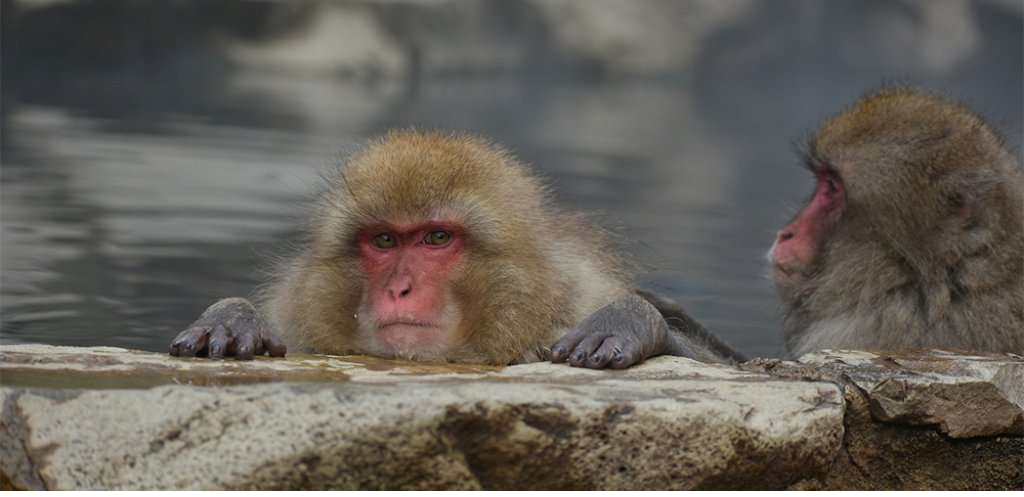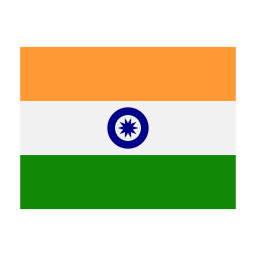

Onsen And Monkeys 3 Days
3 Days: Tokyo, Shibu Onsen, Kanazawa
Tour overview:
Stay in a Kokuya, a traditional Japanese-style hotel (ryokan) with a 400-year history. The ryokan has natural hot springs, which can benefit your muscles, joints, and skin. Visit Jigokudani Park, home to the famous Snow Monkeys. The Japanese Macaques like to soak in the hot springs, and it can be quite entertaining to watch their interactions.
Day 1 - Tokyo – Shibu Onsen
Today is a self-guided day. Depart from Tokyo Station for Nagano via the Hokuriku bullet train, which can reach speeds of up to 260 kph. Upon arriving at Nagano Station, transfer to the limited express train that will run to Yudanaka Station, where a complimentary shuttle bus is provided by the night’s ryokan (traditional Japanese-style inn, available between 15:00 and 18:00. Kokuya is a traditional Japanese-style hotel (ryokan) with a 400-year history. Its present owner is the 16th generation to run the place. The ryokan has six different, 100% natural hot springs, which are rich in health-giving minerals that benefit your muscles, joints, and skin. The ryokan is located on the Shibu Onsen “spa street,” which has nine public onsenopen for use. Take note of the local people strolling down the street in yukata (light robes) as they head for a soak in one of these hot spring baths.
Dinner tonight will be a kaiseki, or Japanese traditional meal, comprised of nine or more dishes. The meal is made up of seasonal dishes using only the freshest of local Nagano ingredients. Overnight in Shibu Onsen (D)
Distance and journey time (approximation):
JR Tokyo Station to Yudanaka Station: 2.5 h
Day 2 - Shibu Onsen
Today is a self-guided day. Another amazing dinner will be served at the ryokan. Overnight in Shibu Onsen (BD)
Suggested Self-Guided Itinerary:
This morning, visit the Jigokudani Park, home to the famous Snow Monkeys. Jigokudani literally means “hell’s valley” due to the steam and boiling water that bubble out of small crevices in the frozen ground. It is in these hot spring baths where the resident Japanese Macaques like to soak. Going to the park from the nearest bus stops and parking lot can only be done on foot, which requires around half an hour of trekking. Comfortable footwear is strongly recommended (and warm clothes especially during the colder months). The monkeys live in large social groups, and it can be quite entertaining to watch their interactions. Accustomed to humans, they can be observed from very close and almost completely ignore their human guests. Although the monkeys live in the area all year round, they are particularly numerous during the colder months (December – April) while less likely to be spotted in Autumn. In the afternoon, it’s recommended to visit the nearby charming town of Obuse, a small town that features a number of traditional houses and stores. Over 100 houses in the town participate in an ‘Open Garden’ event. If this sign sits in front of a house, it means guests can freely enter the property and enjoy the gardens. A great way to get someinsight into Japanese houses. Obuse is also the home of Hokusai, the famous ukiyo-e (woodblock) painter during the Edo period, and Masuichi Ichimura, the local sake brewery that produces high quality sake from locally produced rice.
Note: Transportation to/from Jigokudani can only be arranged on spot (at own expense)
Day 3 - Shibu Onsen – Tokyo/Kanazawa
The rest of the day is free at leisure until the scheduled departure from Shibu Onsen. (B)
2025
DEPARTURES:
Monday,Tuesday,Wednesday,Thursday,Friday,Saturday,Sunday
| Scheduled Departures | Double Occupancy | Single Occupancy |
| Apr 05, 2025 - Apr 07, 2025 |
CAD2,657
|
CAD3,671
|
| Apr 12, 2025 - Apr 14, 2025 |
CAD2,657
|
CAD3,671
|
| Apr 19, 2025 - Apr 21, 2025 |
CAD2,657
|
CAD3,671
|
| Apr 26, 2025 - Apr 28, 2025 |
CAD2,657
|
CAD3,671
|
| May 03, 2025 - May 05, 2025 |
CAD2,657
|
CAD3,671
|
| May 10, 2025 - May 12, 2025 |
CAD2,657
|
CAD3,671
|
| May 17, 2025 - May 19, 2025 |
CAD2,657
|
CAD3,671
|
| May 24, 2025 - May 26, 2025 |
CAD2,657
|
CAD3,671
|
| May 31, 2025 - Jun 02, 2025 |
CAD2,657
|
CAD3,671
|
| Jun 07, 2025 - Jun 09, 2025 |
CAD2,657
|
CAD3,671
|
| Jun 14, 2025 - Jun 16, 2025 |
CAD2,657
|
CAD3,671
|
| Jun 21, 2025 - Jun 23, 2025 |
CAD2,657
|
CAD3,671
|
| Jun 28, 2025 - Jun 30, 2025 |
CAD2,657
|
CAD3,671
|
| Jul 05, 2025 - Jul 07, 2025 |
CAD2,657
|
CAD3,671
|
| Jul 12, 2025 - Jul 14, 2025 |
CAD2,657
|
CAD3,671
|
| Jul 19, 2025 - Jul 21, 2025 |
CAD2,657
|
CAD3,671
|
| Jul 26, 2025 - Jul 28, 2025 |
CAD2,657
|
CAD3,671
|
| Aug 02, 2025 - Aug 04, 2025 |
CAD2,657
|
CAD3,671
|
| Aug 09, 2025 - Aug 11, 2025 |
CAD2,657
|
CAD3,671
|
| Aug 16, 2025 - Aug 18, 2025 |
CAD2,657
|
CAD3,671
|
| Aug 23, 2025 - Aug 25, 2025 |
CAD2,657
|
CAD3,671
|
| Aug 30, 2025 - Sep 01, 2025 |
CAD2,657
|
CAD3,671
|
| Sep 06, 2025 - Sep 08, 2025 |
CAD2,657
|
CAD3,671
|
| Sep 13, 2025 - Sep 15, 2025 |
CAD2,657
|
CAD3,671
|
| Sep 20, 2025 - Sep 22, 2025 |
CAD2,657
|
CAD3,671
|
| Sep 27, 2025 - Sep 29, 2025 |
CAD2,657
|
CAD3,671
|
| Oct 04, 2025 - Oct 06, 2025 |
CAD2,657
|
CAD3,671
|
| Oct 11, 2025 - Oct 13, 2025 |
CAD2,657
|
CAD3,671
|
| Oct 18, 2025 - Oct 20, 2025 |
CAD2,657
|
CAD3,671
|
| Oct 25, 2025 - Oct 27, 2025 |
CAD2,657
|
CAD3,671
|
| Nov 01, 2025 - Nov 03, 2025 |
CAD2,657
|
CAD3,671
|
| Nov 08, 2025 - Nov 10, 2025 |
CAD2,657
|
CAD3,671
|
| Nov 15, 2025 - Nov 17, 2025 |
CAD2,657
|
CAD3,671
|
| Nov 22, 2025 - Nov 24, 2025 |
CAD2,657
|
CAD3,671
|
| Nov 29, 2025 - Dec 01, 2025 |
CAD2,657
|
CAD3,671
|
| Dec 06, 2025 - Dec 08, 2025 |
CAD2,657
|
CAD3,671
|
| Dec 13, 2025 - Dec 15, 2025 |
CAD2,657
|
CAD3,671
|
| Dec 20, 2025 - Dec 22, 2025 |
CAD2,657
|
CAD3,671
|
HOTELS:
- Onsen : Kokuya Hotel
Map
Inclusions & Exclusions
Inclusions & Highlights
Hotel accommodation with daily breakfast
Meals as mentioned in the itinerary (B = Breakfast, L = Lunch, D = Dinner)
Bullet train tickets to and from Nagano (coming from and going to stated city in the itinerary; reserved seats, ordinary class)
Roundtrip limited express train tickets from Nagano Station to Yudanaka Station
PASMO Transport Pass with a value of 1,500 JPY on Day 2
Self-guide app and customized travel documentation
Email Us
We welcome hearing from you! Feel free to call or simply Email us with any questions you may have.
Fields marked with an * are required



